— Click HERE to see the solution to this challenge! —
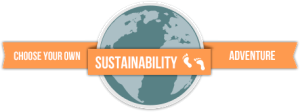 Title
Title
(Ka-)Boom in Mongolia: Mining as a Curse or a Blessing?
Location & date
Mongolia, September 2014
Topics
Energy, Resources
Introduction
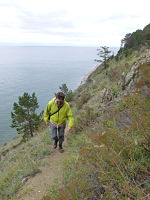 After starting the second year of the Sustainability Adventure with a bus ride from Munich, Germany to Moscow, Russia via Latvia to visit some friends, Valentina and Matt embarked on a +5500km (~3500 miles) journey by train along the Trans-Siberian route to Lake Baikal, the world’s deepest (1700m/5577ft) and oldest (~25 million years) lake and home to almost 20% of the world’s unfrozen freshwater reserves (watch this video to get some of our impressions from
After starting the second year of the Sustainability Adventure with a bus ride from Munich, Germany to Moscow, Russia via Latvia to visit some friends, Valentina and Matt embarked on a +5500km (~3500 miles) journey by train along the Trans-Siberian route to Lake Baikal, the world’s deepest (1700m/5577ft) and oldest (~25 million years) lake and home to almost 20% of the world’s unfrozen freshwater reserves (watch this video to get some of our impressions from 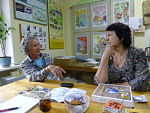 Russia). After visiting the organizations Great Baikal Trail and Baikal Environmental Wave, both with their headquarters in the city of Irkutsk, they continued by train to Ulaanbaatar, the capital of Mongolia (check out our Instagram for some visual impressions).
Russia). After visiting the organizations Great Baikal Trail and Baikal Environmental Wave, both with their headquarters in the city of Irkutsk, they continued by train to Ulaanbaatar, the capital of Mongolia (check out our Instagram for some visual impressions).
Our guidebook says: Mongolia, home to just under 3 million people, is the most sparsely populated country in the world. An estimated 30% of its population is still considered nomadic or semi-nomadic and the Mongolian landscape is characterized by high steppes, mountains in the north and west and the Gobi Desert in the south. Currently, Mongolia is experiencing an economic ‘boom’ being pushed primarily by increasing mining activity.
Mongolia is a beautiful country with friendly people known for their hospitality and thus a popular destination for outdoor tourists from around the world. However, Mongolia has its growing share of environmental problems, social disparities and economic inequalities.
Challenge
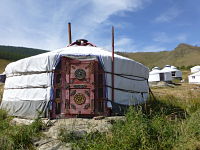 We’re here in Mongolia with almost no internet connection (especially outside of the capital) and we need YOUR help to find out more about mining and energy in Mongolia! We saw on the map that our train to Bejing next month will take us right through one of the key uranium mining areas and were wondering: Is it safe going through there?
We’re here in Mongolia with almost no internet connection (especially outside of the capital) and we need YOUR help to find out more about mining and energy in Mongolia! We saw on the map that our train to Bejing next month will take us right through one of the key uranium mining areas and were wondering: Is it safe going through there?
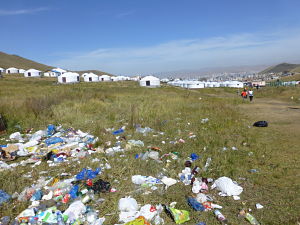 We are also shocked about the seemingly uncontrolled pace of changes in the capital that we have witnessed in just a week staying here and would like some help in getting basic information from you about the situation here (see general questions below). Also, we have some spe
We are also shocked about the seemingly uncontrolled pace of changes in the capital that we have witnessed in just a week staying here and would like some help in getting basic information from you about the situation here (see general questions below). Also, we have some spe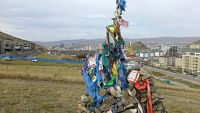 cific questions that require each of your class’s expertise! Your answers will help us (and each other!) learn more about what’s below the surface of Mongolia and make the adventure more than horses, steppes and fermented mare’s milk, which is what most of the tourists see!
cific questions that require each of your class’s expertise! Your answers will help us (and each other!) learn more about what’s below the surface of Mongolia and make the adventure more than horses, steppes and fermented mare’s milk, which is what most of the tourists see!
General questions
- What general environmental issues does Mongolia face and what specific problems is it addressing or does it need to address? [Hint: check out water and air pollution, effects of uranium mining, condition of soil, climate change, etc.]
- What social issues or trends is Mongolia experiencing? [Hint: check out migration, urbanization, demographics, etc.]
- How stable is Mongolia’s economy? What challenges does it face? [Hint: check out economic diversity, issues relating to corruption and foreign investment, etc.]
- What are the primary resources being mined in Mongolia?
- What kind of energy does a Mongolian household use (in the capital and in the countryside) and how much in comparison with your country (e.g. coal, water, solar, nuclear, …)?
- How are the political and cultural relations between your country and Mongolia?
Specific questions
Mr. Dearborn’s Physical Science class at Harrison Preparatory School:
- How does nuclear energy work and where does it come from?
- What is the difference between renewable energy and fossil fuels, where does nuclear energy fit in, and what are the advantages and disadvantages of both?
- What are some (potential) consequences of nuclear energy? [Hint: Think of the whole process, from mining uranium to obtaining nuclear energy to dealing with nuclear waste]
- What are the consequences of uranium mining in Mongolia?
- Does Mongolia have any nuclear power plants?
- Based on your findings, why might some countries ban nuclear energy (e.g. Austria) while others allow it (United States)?
- Are there any nuclear reactors/power plants in Washington State? If so, where do they get their nuclear materials and where does the waste go?
Mrs. Browning-Cray’s senior advisory/art class at Sumner High School:
Based on your research, we’d love to get your artistic impressions of the following:
- How the mining industry and energy use is or might be affecting the Mongolian environment and landscapes
- How economic and social developments in recent years are impacting traditional Mongolian lifestyles (e.g. nomadic herders)
- How mining and nuclear energy use might be impacting lives and landscapes in the United States (e.g. check out nuclear power plants in the U.S., strip-mining, mountaintop removal, etc.)
- The connection between the use of nuclear energy in the United States and uranium mining in Mongolia
Mr. Wandl’s 2HTA class:
- What percentage of Mongolia’s Gross Domestic Product (GDP) does mining make up (and specifically uranium mining) and how was Mongolia’s life and economy set up before the mining boom?
- What are important sources of income for a Mongolian household? What are their energy sources (in the city versus in the countryside)?
- How do the different sectors (potentially) impact each other? For example, how does mining potentially affect herders and agriculture and vice versa?
- How much of a role does tourism play in Mongolia’s economy and how has it developed over the past 10 years or so?
- What are the positive effects of Mongolia’s current ‘economic boom’ and what are the negative consequences as well? [Hint: consider social developments, changes to traditional lifestyles, potential future issues if developments continue, impact on nomadic tourism etc.]
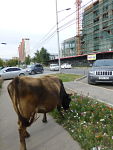 Lots of questions! We are really curious to see what you each find out and looking forward to sharing your findings so that we all get a broader idea – a more holistic perspective – of the situation. Just remember, the first general questions are to help us all get a basic idea of the current situation here in Mongolia. After that, you just need to focus on your class’s specific questions, which need your concrete expertise in science, art or economics! To help you out, here is a list of useful links and websites for more information.
Lots of questions! We are really curious to see what you each find out and looking forward to sharing your findings so that we all get a broader idea – a more holistic perspective – of the situation. Just remember, the first general questions are to help us all get a basic idea of the current situation here in Mongolia. After that, you just need to focus on your class’s specific questions, which need your concrete expertise in science, art or economics! To help you out, here is a list of useful links and websites for more information.
Useful links and information (alphabetical order)*:
- Common Dreams: http://www.commondreams.org/views/2010/03/01/top-10-reasons-we-dont-need-more-nukes
- Discovery: http://www.discovery.com/tv-shows/curiosity/topics/pros-cons-nuclear-power-pictures.htm
- Global 2000: https://www.global2000.at/themen/atomkraft
- Golomt: www.golomt.org (on the left, just under the menu, is a link to some information in English and/or German, e.g. the flyer)
- Greenpeace International: http://www.greenpeace.org/international/en/campaigns/nuclear/
- How nuclear power works: http://science.howstuffworks.com/nuclear-power.htm
- Institute for Safety and Risk Sciences (German and English): http://www.risk.boku.ac.at
- International Nuclear Risk Assessment Group: http://www.inrag.org
- Mongolian Embassy in Vienna, Austria (in English): http://www.embassymon.at
- Mongolia’s English Wikipedia page: http://en.wikipedia.org/wiki/Mongolia
- Mongolia’s German Wikipedia page: http://de.wikipedia.org/wiki/Mongolei
- Munx Tenger (in German): http://www.munx-tenger.de
- Oekonews: http://oekonews.at/index.php?mdoc_id=1076386
- Some of Mongolia’s environmental issues (from the Gobar Times): http://www.gobartimes.org/content/mongolia’s-environmental-problems
- umweltFAIRaendern (in German): http://umweltfairaendern.de/2013/12/mongolei-atomindustrie-und-bergbaukonzerne-contra-nomaden/
- US News: http://www.usnews.com/debate-club/should-nuclear-power-be-expanded/us-should-bring-an-end-to-the-nuclear-era
- U.S. Embassy in Mongolia: http://mongolia.usembassy.gov
- Wendezeit: http://www.wendezeit.ch/vorteile-nachteile-von-atomkraftwerken
* We take no responsibility for the content on the linked websites, nor do the views expressed on third party sites necessarily represent our views. These links are provided solely as a starting point for your research!
Learning objectives of this Challenge
So that we and you have a better understanding of the“real” situation in the country other than what you can read in a guidebook:
- You should be able to name several environmental, social and economic issues that Mongolia is dealing with or needs to address
- You should be able to describe how the economy affects and is affected by social and environmental concerns
- You should be able to describe Mongolian relations with the United States and Austria (e.g. historical, political, economic, cultural, etc.)
- You should be able to describe both positive and negative environmental, social and economic consequences of mining in Mongolia and thereby critically evaluate potential consequences of mining in your country
- You should have an idea of the advantages and disadvantages of nuclear energy and understand why it is a controversial issue in many places
Check the solution video to find out if your research fits with what the other classes found out about Mongolia and the role that mining and energy play here!

